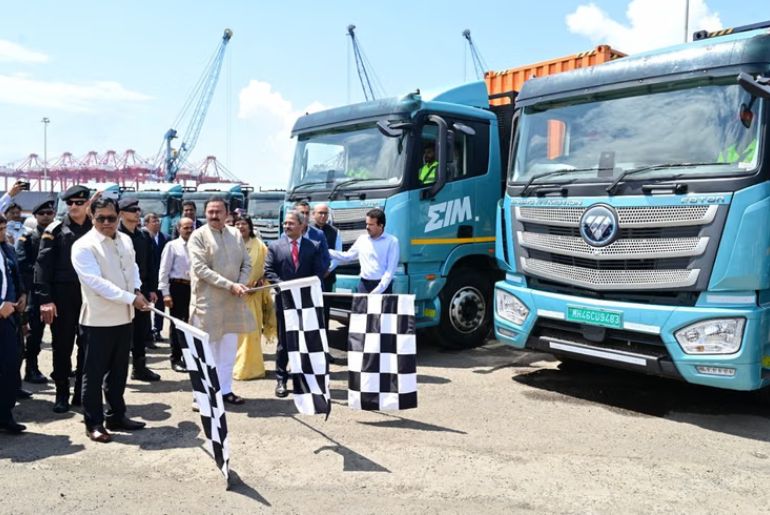In a groundbreaking step toward sustainable logistics, Shri Sarbananda Sonowal, Union Minister of Ports, Shipping & Waterways, inaugurated India’s first fleet of electric heavy trucks with swappable batteries at the Jawaharlal Nehru Port Authority (JNPA). This initiative makes JNPA a pioneer in green port operations, aiming to reduce carbon emissions and enhance operational efficiency in India’s maritime sector.
Key Highlights of the Fleet Launch
-
Initial Deployment: 50 electric heavy trucks have been deployed, with plans to expand to 80 trucks by the end of 2025. JNPA aims to electrify 90% of its internal heavy truck fleet—approximately 600 vehicles—by December 2026.
-
Battery Swapping Technology: A state-of-the-art heavy-duty battery swapping station ensures rapid turnaround, minimizing downtime and supporting continuous fleet operations.
-
Environmental Impact: Electrification of trucks will significantly reduce carbon emissions, noise, and particulate pollution, contributing to India’s net-zero emissions target by 2070 and supporting the National Electric Mobility Mission Plan (NEMMP).
-
Strategic Partnerships: JNPA signed an MoU with the Isaac Centre for Public Policy (ICPP), Ashoka University, to create a tariff benchmarking framework for ports, enhancing transparency and operational efficiency.
Government’s Vision for Sustainable Ports
Minister Sonowal emphasized that the EV fleet launch demonstrates India’s commitment to sustainable and technologically advanced logistics. He highlighted ongoing initiatives in solar and wind energy, LNG and hydrogen fuel infrastructure, and electrification of cargo handling equipment at Indian ports.
“Under Prime Minister Shri Narendra Modi’s visionary leadership, the Indian maritime sector is not only keeping pace with global developments but also setting new benchmarks in sustainability and efficiency,” said Minister Sonowal.
Future Outlook
JNPA’s deployment of electric heavy trucks with swappable batteries sets a benchmark for other Indian ports. This move will enhance operational efficiency, reduce environmental impact, and accelerate India’s transition toward green logistics and sustainable port operations.

